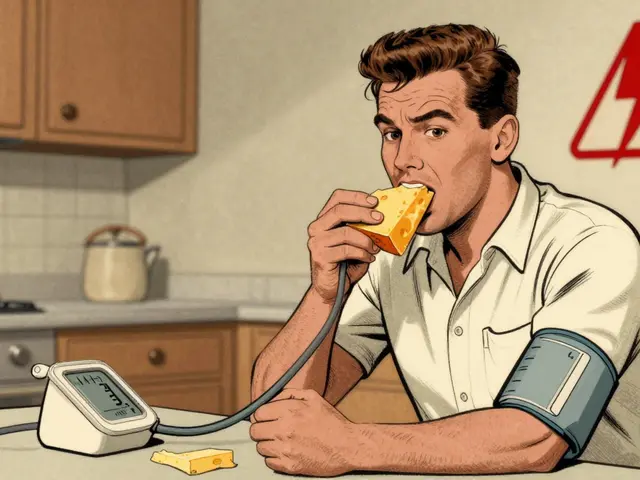Sleep disorders: signs, treatments, and simple fixes
You know that groggy, foggy feeling after a bad night? If that’s your daily normal, you might be living with a sleep disorder. Sleep problems aren’t just annoying — they affect mood, memory, weight, and heart health. This page gives clear, practical guidance on what to watch for, when to seek help, and real steps you can try tonight.
Common types and how to spot them
Insomnia is the most common: trouble falling asleep, staying asleep, or waking too early. If you lie awake for 30 minutes or more most nights, that's a red flag. Sleep apnea causes loud snoring, choking or gasping during sleep, and daytime sleepiness. Restless legs syndrome makes you feel the urge to move your legs at night, which ruins sleep. Narcolepsy causes sudden sleep attacks and often starts in younger adults. Each condition has its own signs, so pay attention to patterns, not just isolated bad nights.
If you fall asleep at odd times, wake up gasping, or can’t sleep despite feeling exhausted, tell your doctor. They may suggest a home sleep test or a stay at a sleep clinic. Tests help identify issues like oxygen drops during sleep or abnormal brain activity that point to specific disorders.
Practical steps you can try today
Start with sleep hygiene—simple habits that matter. Keep a consistent bedtime and wake time, even on weekends. Make your bedroom cool, dark, and quiet. Remove screens at least 30 minutes before bed and try a short wind-down routine: reading, stretching, or breathing exercises. Limit caffeine to the morning and avoid heavy meals close to bedtime.
Behavioral treatments work well. Cognitive Behavioral Therapy for Insomnia (CBT-I) is a short program that teaches how to break bad sleep habits and change unhelpful thoughts about sleep. It often beats sleeping pills for long-term results. For some conditions, doctors prescribe meds: CPAP for sleep apnea, dopamine drugs for severe restless legs, or stimulant and wake-promoting medicines for narcolepsy. Medication decisions should be made with a clinician who knows your full health story.
What about supplements? Melatonin can help reset your clock for shift work or jet lag and may aid some people with falling asleep. Magnesium or valerian are used by some, but effects vary and side effects or interactions matter. Ask a clinician before starting anything new, especially if you take other meds.
When to see a specialist? If daytime sleepiness affects work or driving, if someone reports long pauses in your breathing, or if simple fixes don’t help after a few weeks, get evaluated. Sleep disorders are treatable, and small changes often lead to big improvements. Explore related articles on this site for deeper reads about specific conditions, tests, and treatments that might fit your situation.

Exploring 2025's Top Alternatives to Atarax for Anxiety and Sleep Disorders
Atarax, commonly prescribed for anxiety and sleep disorders, has seen the emergence of several alternatives in 2025. This article explores ten viable options, ranging from new pharmaceutical developments to natural alternatives. Detailed pros and cons of each alternative are discussed to help readers make informed decisions. By considering various factors, individuals can find suitable solutions tailored to their needs.
Read More




